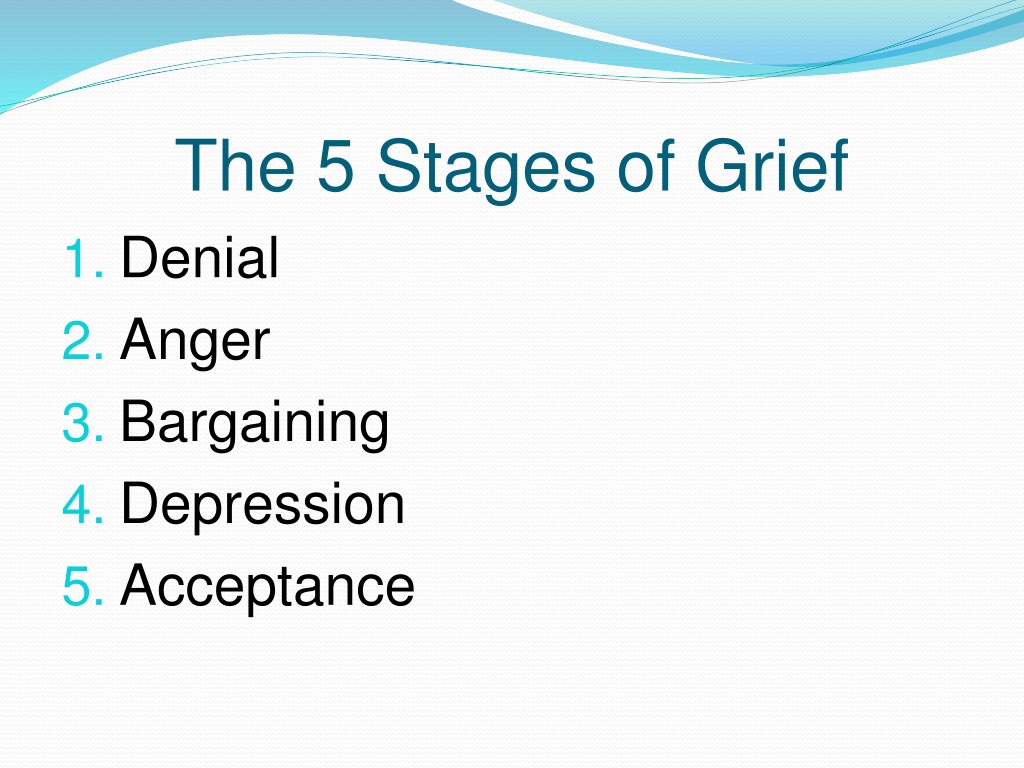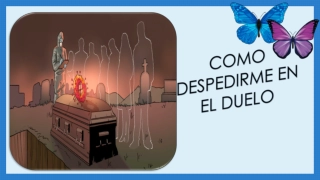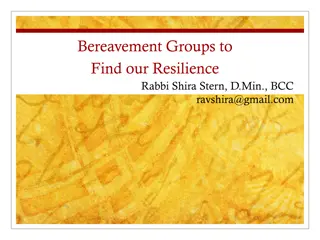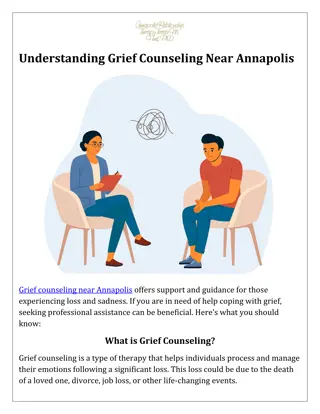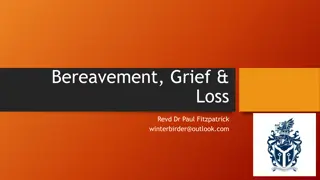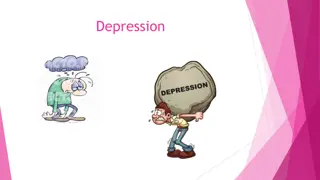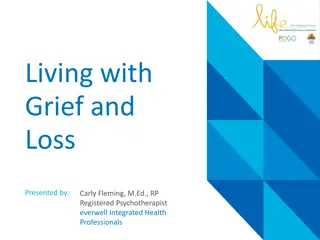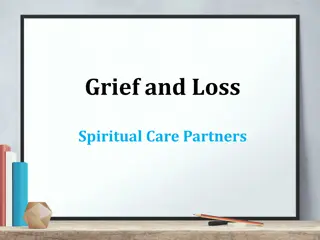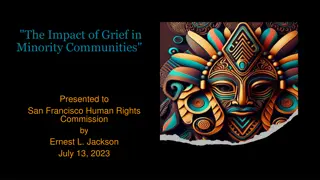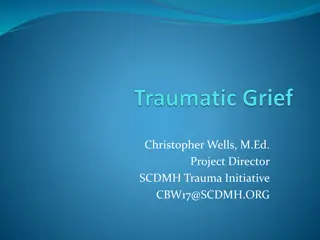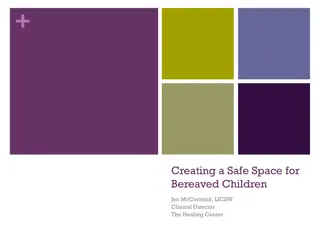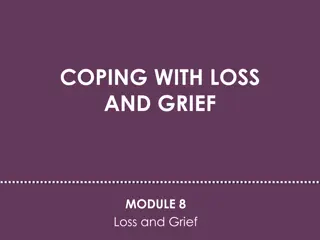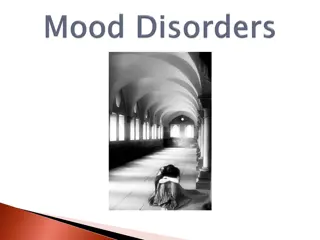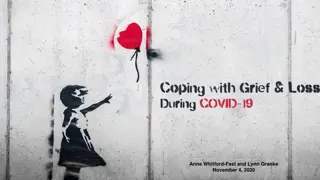Understanding the 5 Stages of Grief and How to Help Others Through Them
The 5 stages of grief - Denial, Anger, Bargaining, Depression, and Acceptance - are explored, with tips on how to support those experiencing them. Grief doesn't follow a linear path, and cultural, personal, and situational factors influence how individuals grieve. Children coping with loss should be communicated with honestly to prevent lasting harm.
Download Presentation

Please find below an Image/Link to download the presentation.
The content on the website is provided AS IS for your information and personal use only. It may not be sold, licensed, or shared on other websites without obtaining consent from the author. Download presentation by click this link. If you encounter any issues during the download, it is possible that the publisher has removed the file from their server.
E N D
Presentation Transcript
The 5 Stages of Grief 1. Denial 2. Anger 3. Bargaining 4. Depression 5. Acceptance
Stage 1: Denial Refusing to believe a probable death will occur. You can help others face it by being available for them to talk instead of forcing them to talk about it.
Stage 2: Anger Once the diagnosis is accepted as true, anger and hostile feelings like the following can occur: - Anger at God for not allowing them to see their kids grow up - Anger at the doctors - Anger at the family - Try not to take it personally. They have a right to be angry so allow them to express themselves so they can move on in the grieving process.
Stage 3: Bargaining They dying person may start to negotiate with God i.e. I ll live a healthier life, I ll be a nicer person, I was angry so let me ask nicely to please let me live. They may negotiate with the doctor by saying, How can I get more time so I can live in my dream home, and so on. There is a deep sense of yearning at this stage to be well again.
Stage 4: Depression When reality sets in about their near death, bargaining turns into depression. Fear of the unknown Guilt for demanding so much attention and depleting the family income occurs. Be available to listen instead of cheering them up, or rambling, repetitive talk. Distraction like talk about sports, etc., is good but don t ignore the situation.
Stage 5: Acceptance When the dying have enough time and support, they can often move into acceptance. There is an inner peace about the upcoming death. The dying person will want someone caring, and accepting by their side.
Summary The stages don t always occur in order. Whether you are the patient or the loved one, nobody escapes grief. People grieve at different rates of time. Delayed grief can occur when people suppress the emotions of the death and years later, get depressed. Cultural differences, age, gender, race, and personality change the way people grieve. Bereaved persons have higher rates of depression, and are at greater risk for illness than non-bereaved.
Helping Children Cope Be straightforward; distortions can do lasting harm i.e. he s gone to sleep can lead to a fear of sleep or God took her, leads to a hate for God. Reassure that they are no way to be blamed and will be taken care of. Let child participate in the family sorrow and grief. Give as much attention to the child who cries as to the one who doesn t cry. Silence between family and friends makes it worse. Don t say, you are the man of the house now or be brave.
Grieving Life Events Events like divorce, separation from children, break-up of boyfriend/girlfriend, losing a job/unemployment, can feel like going through an inner death. The stages of denial, anger, bargaining, depression, and acceptance also occur in these circumstances. Feeling dead in our job, in our relationship, in our roles, in our bodies is a reality with many people. Do drugs deaden your emotions and energy? Does a mother or father deaden your enthusiasm? Turn away from these deadening factors and choose to find peace, meaning, value, and purpose in your life.
How to Cope with Death Allow yourself to grieve by looking at pictures, playing nostalgic music, and reading old letters. Use dance as a way to express how you felt. Use painting/drawing to express your feeling. Imagine howJesus, Buddah, Mohammed, or a greak oak tree would tell you how to cope with it. Funerals, ceremonies, and rituals help people with the grieving process.
